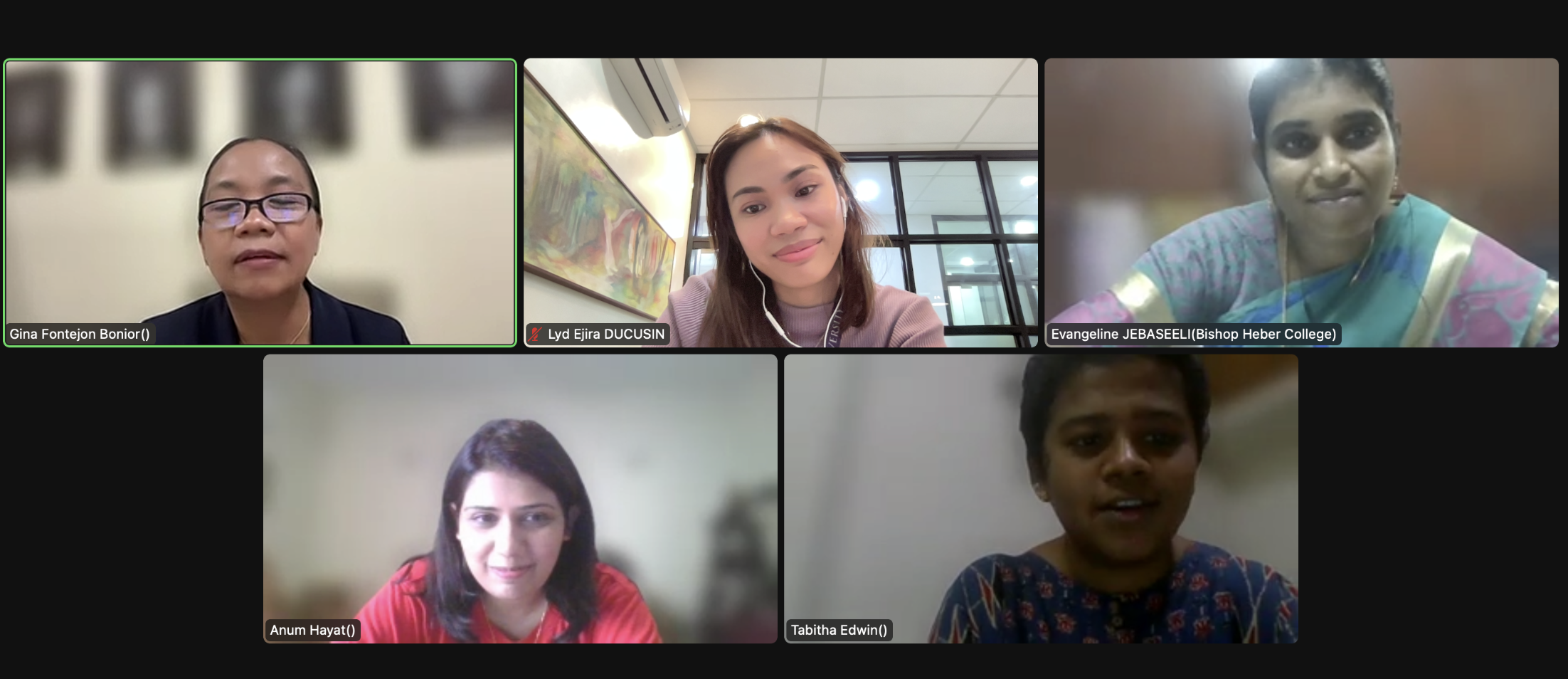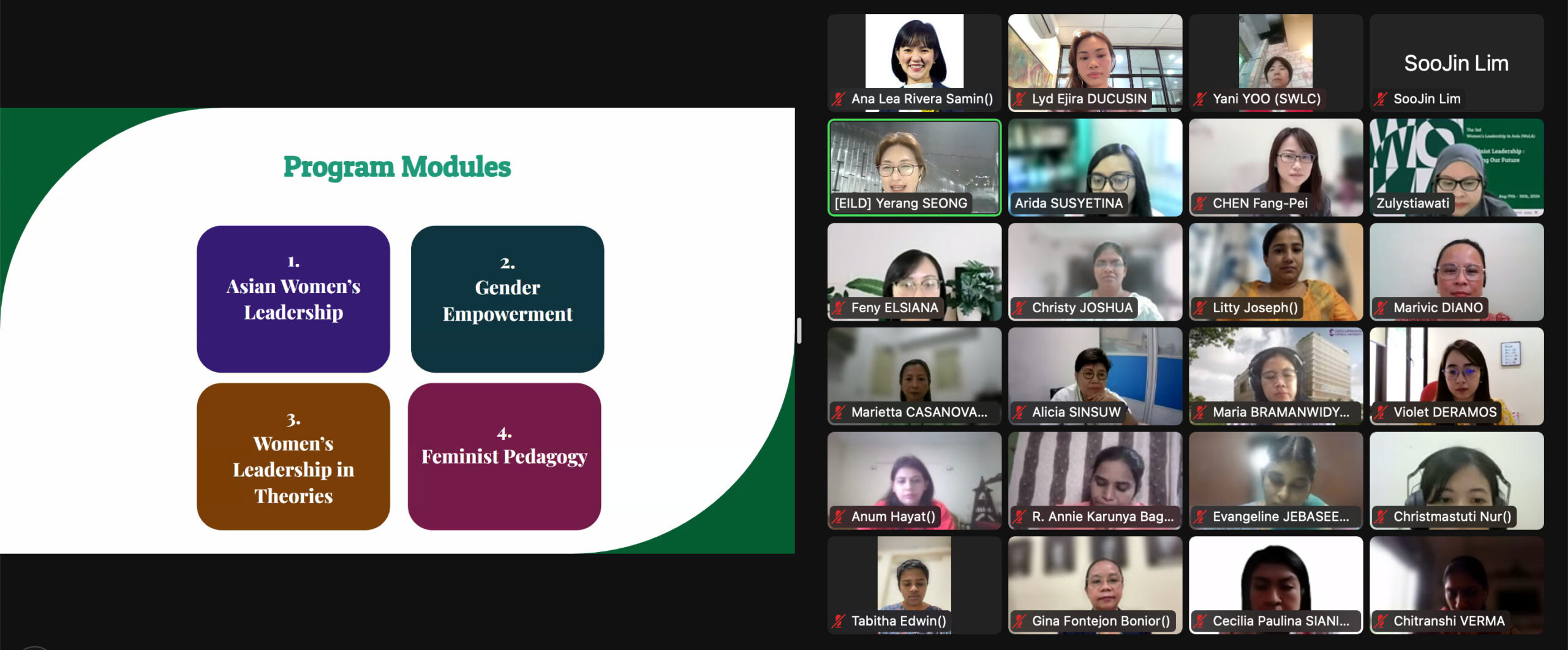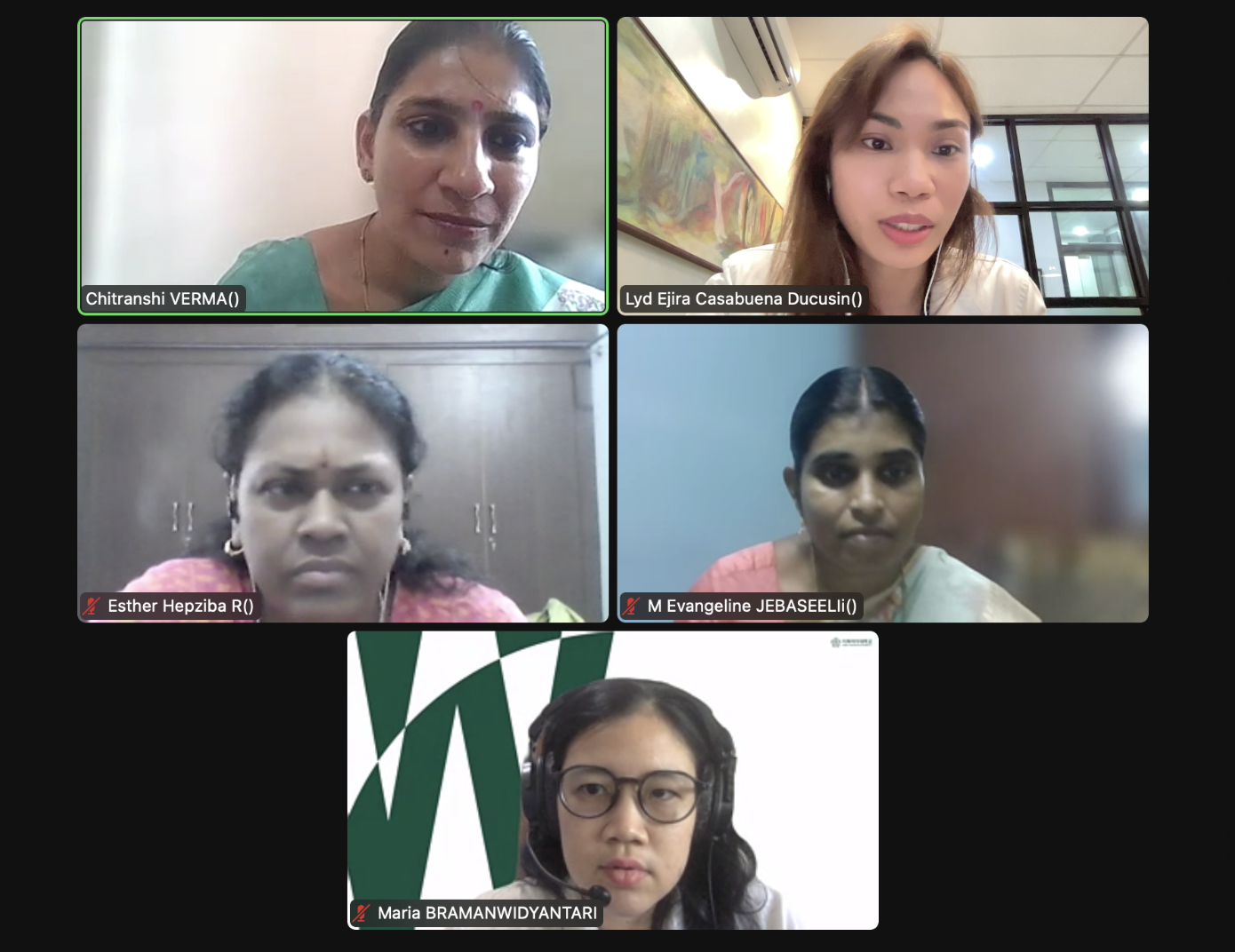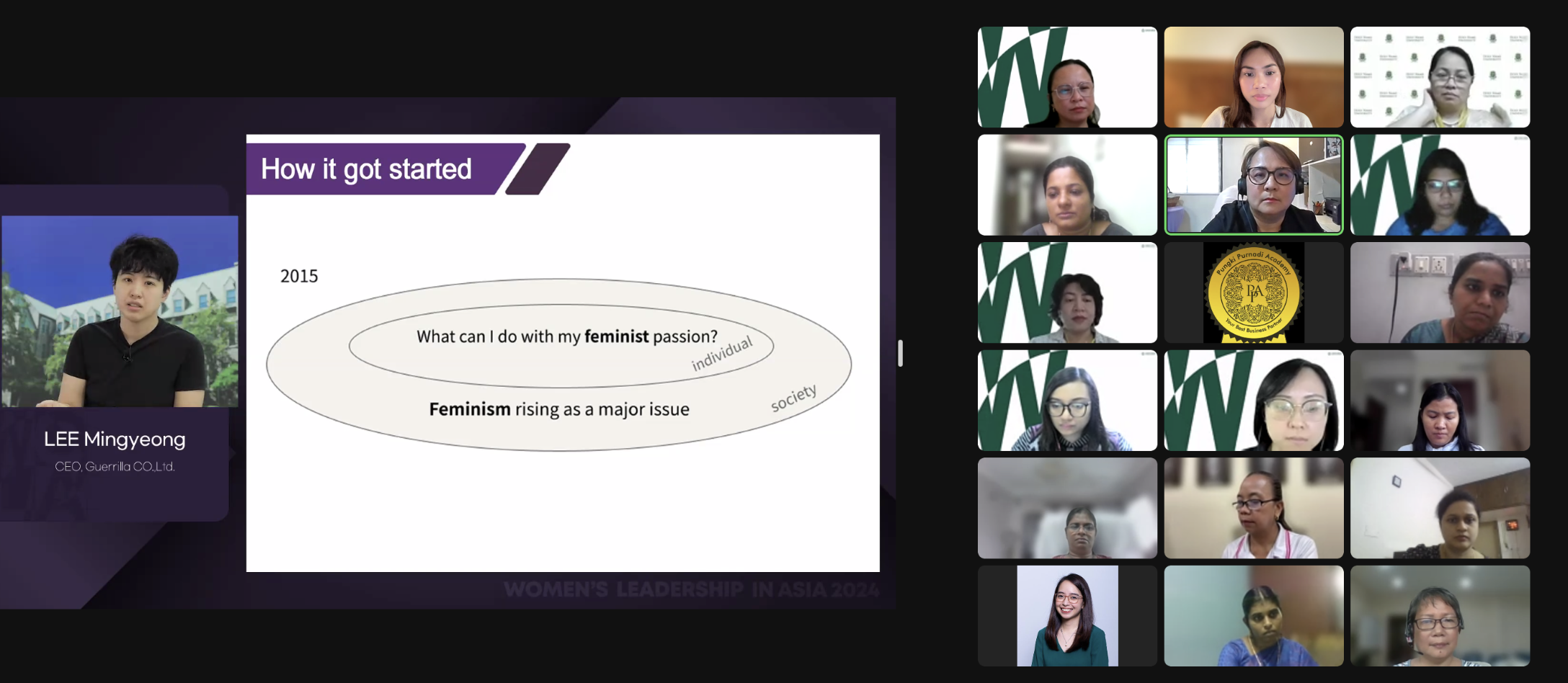Ateneo Internationalization for Mindanao Office Assistant Director, Ms. Lyd Ejira C. Ducusin, completed the Women’s Leadership in Asia (WoLA) 2024: Feminist Leadership for Shaping Our Future, held from 19 to 30 August 2024.
WoLA is an online leadership course for emerging women leaders from higher education institutions across Asia. Initiated and developed by the Ewha Institute for Leadership Development at Ewha Womans University in Seoul, South Korea, this program is sponsored by the Scranton Women’s Leadership Center, the United Board for Christian Higher Education in Asia, and the Wesley Foundation in Japan.
Through a scholarship from the United Board, Ms. Ducusin participated in lectures and sessions on feminist leadership, gender empowerment, women’s leadership theories and practices, and feminist pedagogy presented by remarkable women leaders from all over Asia.
In the first session, Professor Kang Minah from the Department of Public Administration, Ewha Womans University, and Dr. Hope Antone, Program Director of Faculty Development, United Board, led discussions on women’s leadership. Prof. Kang talked about women as enablers, transitioning from gender-sensitive to gender-transformative roles, while Dr. Hope engaged in the importance of a multidimensional, intersectional approach to leadership. Adopting a whole-person approach requires a growth mindset characterized by curiosity, adaptability, and lifelong learning.
Ms. Anuradha Rajan, Executive Director of the South Asia Women Foundation in India, covered strategies for leadership empowerment and combating gender-based violence. Transformative leadership, as Ms. Rajan explained, goes beyond envisioning a better future; it actively engages in creating that future through authentic, inclusive, and strategic actions.
On the topic of women’s leadership theories, Ms. Kim Eun-Shil, Professor Emeritus of Women’s Studies at Ewha Womans University, presented distinctions between feminism and feminist perspectives. Continuing into the next module, Professor Cha In-Soon from the Parliamentary Training Center in Korea discussed gender equality policies and their impacts. Findings on gender mainstreaming in legislation reveal that incorporating gender perspectives is essential in policy-making. Next, Ms. Kim Dohwan, Co-CEO of Tri-C Psychology Institute, expounded on harnessing personal strengths for leadership through self-awareness and self-mastery.
The sessions on interdisciplinary innovations were timely, especially given the global impact of technology and AI. Professor Londa Schiebinger from Stanford University shared her expertise on gendered innovations, while Ms. Alessia Coreani, an independent Data and AI ethical advisor for the European Commission, addressed navigating the AI revolution. Professor Nahyim Yoonkyeong from Yonsei University encouraged reflective practices in teaching feminism from a humanities perspective, centering on coexistence, gender justice, and sustainability.
The course also featured sessions by Professor Lili Kim, Professor of History and Global Migrations at Hampshire College, on “Transformation and Empowerment in the Classroom and Beyond,” and Professor Jeong Heejin, a former visiting professor at the Graduate School of Policy Sciences, Ewha Womans University, on “Neoliberal Governance and Feminism: From Liberal Paradigm to Ethics of Responsibility.” A key takeaway was the importance of feminist pedagogy for transforming educational practices. The second session shed light on the pervasive influence of global capitalism, which has infiltrated all aspects of human life, and the implications of absolute capitalism on education and feminism. Discussions on neoliberal governance in relation to feminism were insightful. Another takeaway was that all knowledge is localized and derived from specific contexts, challenging the notion of universal knowledge, often seen as a constructed concept. Feminism, in this context, becomes an active process where women participate in the construction of knowledge.
Lastly, Ms. Lee Min-Kyung, CEO of Guerrilla Production Co. Ltd., shared her journey as a feminist writer, emphasizing that language is crucial in feminist discourse. The session was moving, especially as she recounted her path to feminism, which began in 2015 when she asked herself, “What can I do with my feminist passion?” This question led her to create spaces for dialogue and support for women who feel isolated, teach language through a feminist lens, and work toward better economic opportunities and work environments for women through her publications. She highlighted economic solidarity among women, stressing the importance of financial and spiritual support networks. This concept challenges the myth that isolation offers safety, advocating instead for connection, dialogue, and mutual support.
WoLA 2024 provided salient insights on leadership, inspiration, and encouragement. It was an opportunity for women leaders to contribute to promoting gender equality, harness visionary leadership skills, and build a supportive network with ambitious peers from diverse backgrounds.




Published on
